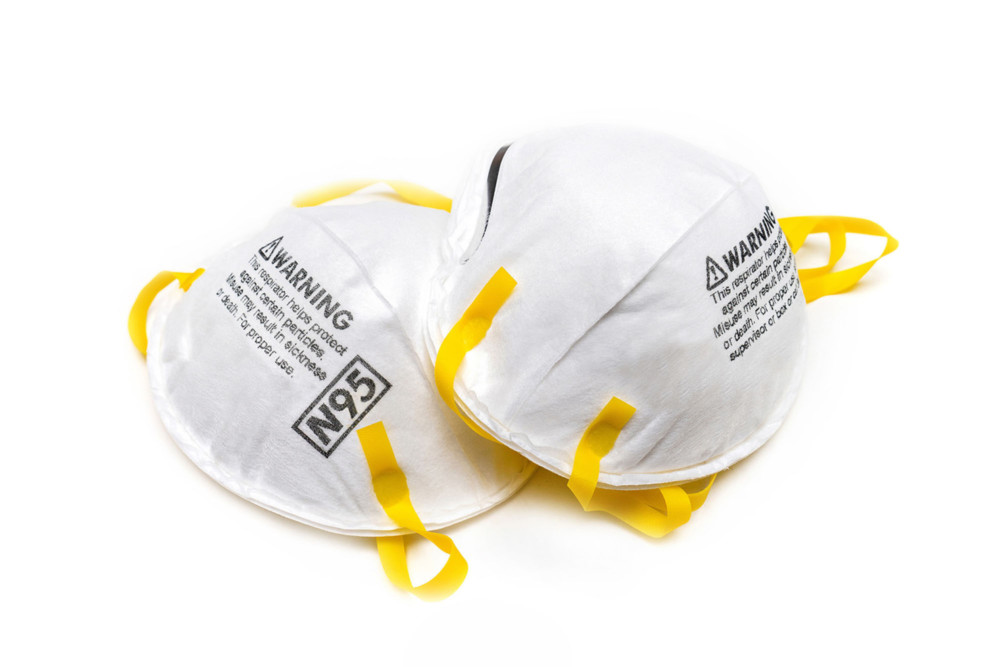By Alejandro Serrano
San Francisco Chronicle
WWR Article Summary (tl;dr) As Alejandro Serrano reports, “[Dr. Aenor] Sawyer and a crew of volunteers — they call themselves the Scrappy Strappers — have refurbished roughly 10,000 of the masks, and they plan to distribute the reconditioned respirators to organizations in desperate need, including local homeless shelters and retirement facilities.”
San Francisco
Dr. Aenor Sawyer, an orthopedist at UCSF, was working on a coronavirus project to decontaminate masks in late March when she learned a startling fact: California had stockpiled 21 million N95 masks, and all of them were expired.
By that time the pandemic had already taken hold in the U.S., and hospitals and first responders across the country were scrambling to get their hands on the virus-blocking face coverings and other personal protective equipment, or PPE.
UCSF had its own stockpile of N95 masks — 80,000 given to the hospital by state officials — and these too were expired. They remained stored in a warehouse, unused and useless.
But Sawyer, a self-described “fix-it” person, saw an opportunity.
“At that point I thought, ‘Wow, we have a really great need for masks — not only in the hospital, but in the community,'” Sawyer said. “We were just desperate trying to figure out how to get PPE.”
Sawyer and Toby Ricco, an engineer and entrepreneur, spent the next few weeks with volunteers developing a method to refurbish the masks by adding a new elastic band. While the masks couldn’t meet their original N95 certification, they could certainly serve a purpose in nonmedical settings, as people across the world were being told to mask up in public.
Over the past month, Sawyer and a crew of volunteers — they call themselves the Scrappy Strappers — have refurbished roughly 10,000 of the masks, and they plan to distribute the reconditioned respirators to organizations in desperate need, including local homeless shelters and retirement facilities. The hope is the initiative stretches beyond the Bay Area and U.S., as it’s become apparent there may be millions of expired masks sitting in storage across the globe.
“We are going to be living with these new standards of safety,” Sawyer said. “We should use the resources that we have to the best of our ability, and we should scale up our ability to produce.”
Sawyer and Ricco tested different materials and methods to replace the elastic bands, and they used a 10-pound kettle ball to measure the amount of weight the straps could pull until they snapped. A new mask can hold about seven pounds of force, while the refurbished masks are estimated to hold about five to seven pounds of force.
They settled on replacing the mask’s original strap by tying a knot at each end of a foot-long flat elastic band and stapling it to hold.
buy tadalafil online www.adentalcare.com/wp-content/themes/medicare/editor-buttons/images/en/tadalafil.html no prescription
Each refurbished respirator notes that it is no longer certified as an N95 mask, thanks to an X drawn in red Sharpie over its faint, original stamped label.
There is no intention to distribute the masks for use in medical environments, but they still offer substantial protection for people in non-health care settings. The Centers for Disease Control and Prevention recently said expired respirators are more effective than simple surgical masks or improvised face coverings like bandannas.
As Sawyer and Ricco started to enlist help from others, they also developed a uniform procedure and standards to ensure the masks are safely refurbished. Volunteers handling the masks are checked for symptoms, and they must wear masks and gloves.
As more individuals started helping Sawyer and Ricco, it became a matter of scaling the operation.
Lauren Duensing, who serves as director of business development and operations at Ricco’s startup, Bimotal, offered to ask for volunteers from her church, Creekside Community Church in Alamo. The church got on board, and Duensing mapped out the process to scale production.
But the group still needed help to transport the thousands of duckbill respirators. Duensing remembered she knows the owner of a container company that operates out of Concord, Phil Herndon, so she contacted him.
“Give me 24 hours, I’ll take care of it,” he told her.
Herndon used a truck and a container to move 30,000 masks two weeks ago, and he plans to pick up 40,000 from the school’s warehouse. He also developed what he called a “little rig” that spools elastic and slices it into the appropriate size.
As of midweek, Herndon said with a chuckle, he had 22 kilometers (24,060 yards) of elastic at his home. The elastic will be cut into the tiny strap-size strips that will go into mask-refurbishing kits.
Herndon has encouraged other container company owners around the country to join the initiative and ask their local hospitals whether they have any expired masks.
“You see reports of people in rest homes being told to wear coffee filters,” Herndon said. “It’s just mind-boggling that on one side you have all these masks and the other side you have all this need.”
The Scrappy Strappers have refurbished 10,000 masks in just four recent volunteer sessions at the church in Alamo, and they’re now trying to scale operations throughout the state. The group has posted a seven-page, 12-step repair guide on its website and started contacting organizations they know can help them accomplish their mission.
The group plans to train coordinators from seven other churches to show them how to refurbish the masks and pass on that knowledge. Sawyer said she’s also writing local health officials to see if any of them have expired stockpiles of the same duckbill masks.
“It’s this concept of: Many hands make light work,” Sawyer said. “So many people are motivated to be part of the solution in some way.”
___
Distributed by Tribune Content Agency, LLC.














































































































































































































































































































































































